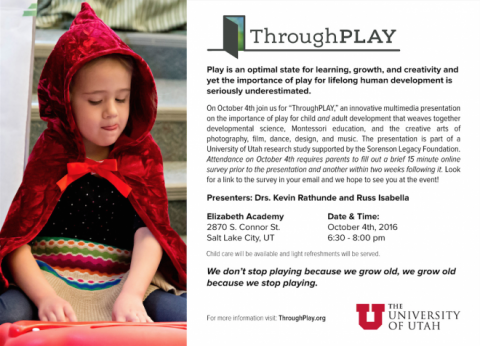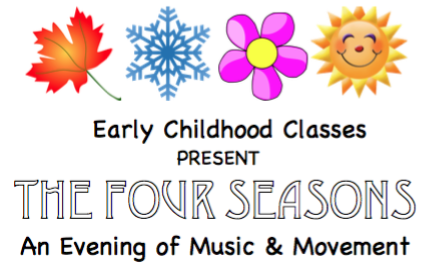Toddlers Transitioning to an Early Childhood Classroom
What to expect when Toddlers transition to Early Childhood Classroom
Transition to any new classroom requires change for children, parents and even teachers, who are eager to meet and learn the unique personality and gifts of each child. But the change can be slightly different for different age groups. Here are some things you may notice about the environment of your child’s new classroom; the group sizes and ratios, staff communication and new education opportunities.
At Foothill Montessori of Salt Lake the transition from our Toddler Classroom to Early Childhood Classroom takes place at two different times. If the toddler is enrolled for summer, is three years old by June 1st and the teachers consider him/her to be ready to enter the Early Childhood program he/she would transition on the first day of Summer Camp. All other toddlers who are scheduled to move to Early Childhood for the next Academic Year would move at the beginning of the Academic Year. A child is able to transition into Early Childhood classroom based upon their age, toilet-learning abilities, and social readiness.
Early Childhood is where they begin to leave behind the Toddler years. This transition is often the one parents anticipate most. Children who have previous experience in a classroom setting usually dive right in. Three year olds often are transforming themselves daily. Their motor and perceptual skills, social skills, and most dramatically, their cognitive powers, are catapulting them into new territory. Expectations for children’s planned educational experiences increase as they proceed through Early Childhood.
Transition readiness. To prepare your child to transition into the Early Childhood, we gradually introduce them to their new classroom. The children are able to visit Early Childhood classrooms before their anticipated transition date. This time allows them to become familiar with the environment, teachers, and students in their classroom at a gradual, slow pace.

Early Childhood classrooms may appear full of activity, but there is an order, based on learning areas and individual work. Children are engaged in all sorts of exploration and discovery in a changing environment that is well-prepared by the teachers. Teachers are orchestrating experiences and are strategically engaged in discussion, encouragement, education, caring, and helping children navigate tricky social situations and learning self-control. When your child initially enters the Early Childhood Classroom he/she is introduced to all of the main areas of the classroom; Practical Life, Language, Sensorial, Mathematics, Geography, History, Science, Art, Botany, Zoology and Peace. The children will also be introduced to the Music/Dance and Outdoor Classroom spaces with the focal point being the Practical Life area.

A larger group size.
Early Childhood classrooms have more children. More children means more space, which in turn results in more learning opportunities.More consistent routines.
Since Early Childhood students are able to verbalize more and follow routines, the classroom routines are more consistent. Toddlers often have difficulty with transition periods, where a student of Early Childhood age does not- so they are able to have a very consistent routine within the classroom. With the “I can do it myself” attitude of children ages 3-6 and their growing independence from adults, a higher ratio and group size is possible and beneficial without sacrificing quality in care and education. This ratio allows for increased time to interact with other children and their environment, given their budding social skills. The staff to child ratio is 1:13 for the Early Childhood (3 – 6) age group.
 Ways of communication.
Ways of communication.It is not possible for daily written reports in Early Childhood classrooms, with some exceptions, because of the larger group size in Early Childhood classroom, but there are lots of creative ways that parents and teachers can communicate, through e-mail or writing a note to teachers and passing it during morning drop off.
Transition Concerns.
As part of the transition process, toileting accidents are bound to happen. As the children experience a new level of independence, they will learn again, how to grasp cues as to when it is time to use the restroom. This is all part of the process and we find it normal. The teachers will help as necessary for your child to become adjusted to his/her new routine.
Your child may also begin to experience separation anxiety. Coming to school will be a whole new experience as he/she is in a new environment. Please note that this anxiety will only be temporary and helping to keep the children in a routine will greatly help their transition into their new classroom.
Please note that if you have concerns at anytime during the transition process we would request that you address your concerns with us so we can help to encourage a positive transition.
Thank you,
Early Childhood Teachers




